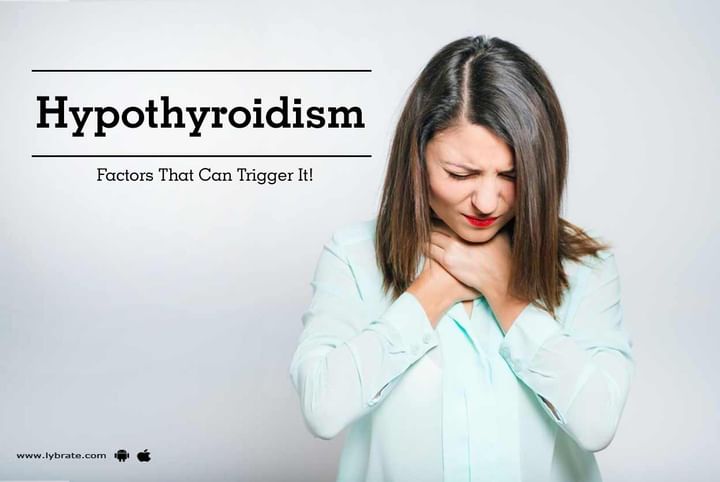Hypothyroidism - Factors That Can Trigger It!
Do you have an extremely low reading of thyroxine or T4, it means that you are suffering from an under active thyroid disease called hypothyroidism. With this condition, your thyroid glands fail to make sufficient thyroid hormones. The thyroid gland releases hormones, which travel all over your bloodstream and affect all parts of the body. Thyroid controls how the cells of the body use energy from food via the metabolism process, which in turn affects the body’s temperature, heartbeat and burning of calories. Lack of thyroid hormones slows down the body’s functions, reduces your energy and the metabolism is disrupted.
Causes of hypothyroidism
The primary cause of this condition is Hashimoto’s thyroiditis. Thyroiditis refers to an inflammation of your thyroid gland. Hashimoto’s thyroiditis is an autoimmune disorder in which extra antibodies are produced which destroy the thyroid gland. Viral infections may also lead to thyroiditis.
Other causes of the condition are as follows:
- Radiation therapy to the neck region for the treatment of several cancers like lymphoma may damage the cells present in the thyroid gland. Hence, the gland cannot secrete hormones properly.
- Radioactive iodine treatment is undertaken by people having an overactive thyroid gland. Radiation destroys the thyroid gland cells and leads to hypothyroidism.
- Certain medicines used to treat heart problems, cancer and psychiatric diseases may affect the thyroid gland and lead to hypothyroidism.
- Surgeries undertaken for removing the thyroid also lead to hypothyroidism.
- Iodine is required by the thyroid gland to produce hormones. A low amount of iodine in your diet and body may lead to hypothyroidism.
Risks factors of hypothyroidism
Usually women, especially older women are more likely to get hypothyroidism than men. The factors which determine if you are at a risk of acquiring the condition are as follows:
- Race
- Age
- Premature graying of hair
- Autoimmune disorders like type 1 diabetes, rheumatoid arthritis, vitiligo, celiac disease, Addison’s disease and many more.
- Bipolar disorder
- Turner’s syndrome
- Down’s syndrome
The symptoms of hypothyroidism are as follows:
- Changes in menstrual cycle
- Constipation
- Hair loss and dry hair
- Fatigue and tiredness
- A slow heart rate
- Depression
- An increased sensitivity towards cold
- Swelling of the thyroid gland or goiter
- Gaining weight unusually or great difficulty in losing weight
- Carpal tunnel syndrome
If you observe the symptoms of hypothyroidism, you should consult a doctor who will prescribe several blood tests, such as the thyroid stimulating hormone test and the T4 or thyroxine test. Based on the results, a treatment method is adopted.



+1.svg)
